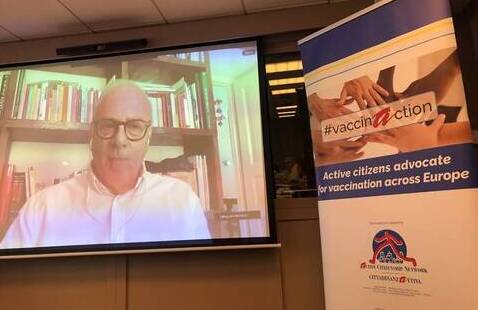
The European People’s Party (EPP), the centre-right European parliamentary group, is advocating for a reform of the ENVI committee (Environment, Public Health, and Food Safety). The proposal involves creating a separate committee dedicated exclusively to public health, with a decision expected as early as today, 11 July.
Peter Liese, head of the German delegation of the EPP, argues that a dedicated public health committee would allow for more attention and resources to be allotted to this sector, improving the efficiency of parliamentary work by assigning deputies, secretariat staff, and discussion time.
Currently, public health falls under the jurisdiction of the ENVI committee, which also handles environmental and food safety issues. According to the EPP, this thematic overlap reduces the capacity to adequately focus on public health.

However, not everyone agrees with this proposal. The Socialist and Democrats, the Greens and The Left group oppose the division of the current committee.
According to them, keeping public health within ENVI is crucial to preserving the “One Health” approach, which emphasizes the interconnection between human, animal, and environmental health. «There is a risk that public health will be addressed separately from the environment, compromising the ‘One Health’ approach», said Tilly Metz, spokesperson for the Greens.
The EPP’s proposal is not new. At the beginning of the current legislature in 2019, the group pushed for a separate public health committee. However, they only managed to secure a compromise: in February 2023, the SANT subcommittee (an acronym for “santé”, French for health) was created. However, the subcommittee does not have autonomous legislative power, and the proposals discussed in SANT must subsequently be voted on in ENVI.
Dates to watch out for
The discussion is far from over. This Thursday, the Conference of Presidents of the European Parliament (the supreme body of the European Parliament, composed of the President of the European Parliament, Roberta Metsola, and the presidents of the seven political groups) could decide on the creation of a committee dedicated exclusively to public health. However, internal sources in the EPP and the European Left have informed our editorial team that no new committees are expected to be created at this time.
The following week (July 16-19), the European Parliament will meet in Strasbourg for the first session of its new legislature (2024-2029). On Wednesday, July 17 at 12:30 PM, a vote will be held on the number of deputies for each committee, while on Friday, July 19, the composition of the committees will be announced.
Subsequently, on July 23 in Brussels, the constitutive meetings of the committees will be held, with the election of their respective presidents and vice-presidents. Work on political dossiers will begin after the summer break: on 9 September for SANT and on 23 September for ENVI. It is rumoured that the EPP might want to delay the decision until the fall to secure more political appointments in a second round of decisions.
With 88 members, ENVI is currently the largest committee in the European Parliament. The EPP’s reform proposals reflect ongoing changes within the European Commission, led by President Ursula von der Leyen, who belongs to the same political faction. According to an internal draft from the European Commission’s General Secretariat (which works for the 27 European Commissioners – one per Member State), the Directorate-General for Health and Food Safety (DG SANTE), currently divided into two areas – public health and food safety – could also undergo reorganization in September, with food safety being transferred to the Directorate-General for Agriculture (DG AGRI).
Possible impacts of the reorganisation
If approved, the creation of a separate public health committee could improve efficiency in managing crucial issues such as responding to future pandemic crises, the European Cancer Plan, and antibiotic resistance. However, there is a risk that this separation could weaken the integrated and multidisciplinary approach to health, known as ‘One Health’, which has been a focal point of European Commission President Ursula von der Leyen following the Covid-19 pandemic. If this happens, it would be seen as another step towards the failure of the European Green Deal.
The decisions made in the coming weeks and months could have a lasting impact on the management of public health in Europe.




